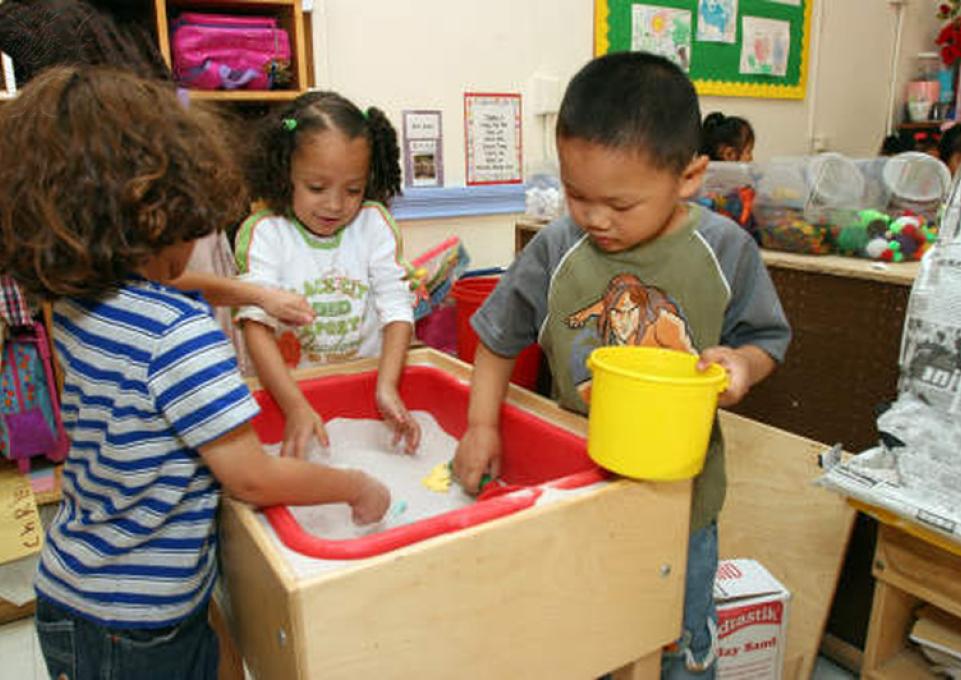
Parents who want their children to succeed in school might help them more by encouraging them to play rather than to study academic subjects.
Reva Fish, assistant professor of social and psychological foundations of education, and Laura Klenk, assistant professor of elementary education and reading, are observing activities in pre-K classrooms. What they see is limited time for free play, and they share a concern: the importance of play is not understood by parents and educators.
“We are trying to find a way to talk about play that encourages people to take children’s play seriously,” said Klenk. Both educators agree that play—free, unstructured activity that children choose to engage in—is, among preschoolers, a developmentally appropriate way to learn. Substituting developmentally inappropriate activities may undermine children’s ability to develop the skills that underlie academic success: engagement, persistence, and stamina.
The focus on measuring academic achievement—testing—is occurring even among children ages 3 and 4. “We’re assessing reading and math skills at younger and younger ages,” Fish said. “We’re changing the activities, the lessons, the goals. But the problem is that children haven’t changed. Developmental milestones haven’t changed—drawing a straight line, drawing a figure.”
Klenk said that children engaging in play are developing academic skills as well as the emotional and behavioral skills that will enable them to succeed as they continue through childhood. “If they are playing among themselves, they have to learn how to talk to each other, and that’s developing language skills,” she said. Klenk, who has studied play for 25 years, added that the concept of quantity—counting—also develops through group play. “And play also has strong emotional and social development components,” she said.
Both educators agree that children who are engaged in unstructured, creative, self-chosen activities develop stamina for learning. Because they have freedom to choose, they stick with their play longer. “Learning is deeper, and it lasts longer,” said Fish. “This pattern is important as children move up through the grades.”
On the other hand, if teachers direct children’s learning too much, even through play, with directions such as “Make this,” or “Show me what you can make,” the learning is shallow and easily forgotten.
It’s not just educators or even testing, however, according to Fish and Klenk. “Parents are pressuring their pre-K classrooms and even day care centers to teach academic skills like word recognition,” said Fish. “It’s as if we’ve lost our faith that kids are born wanting to learn.”
Fish and Klenk were featured presenters at the 2013 Conference on the Value of Play held at Clemson University in February. The U.S. Play Coalition awarded them a seed grant to continue their research on the importance of play. They are meeting with other faculty members from the School of Education to discuss ways to persuade educators and parents to provide developmentally appropriate learning activities in pre-K classrooms. “Play is so important,” said Fish. “It’s short-sighted to take it away.”
